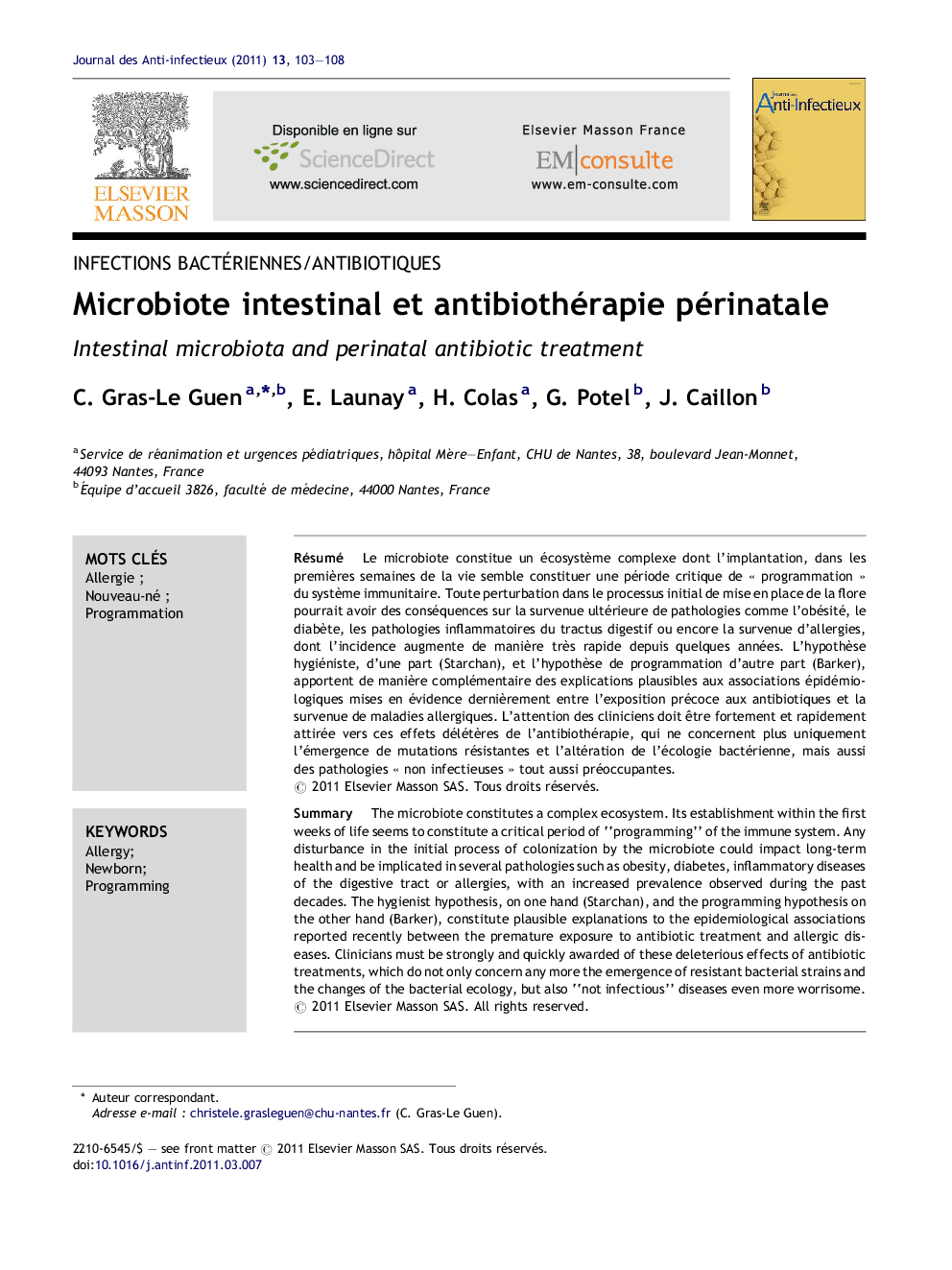| Article ID | Journal | Published Year | Pages | File Type |
|---|---|---|---|---|
| 3405492 | Journal des Anti-infectieux | 2011 | 6 Pages |
Abstract
The microbiote constitutes a complex ecosystem. Its establishment within the first weeks of life seems to constitute a critical period of “programming” of the immune system. Any disturbance in the initial process of colonization by the microbiote could impact long-term health and be implicated in several pathologies such as obesity, diabetes, inflammatory diseases of the digestive tract or allergies, with an increased prevalence observed during the past decades. The hygienist hypothesis, on one hand (Starchan), and the programming hypothesis on the other hand (Barker), constitute plausible explanations to the epidemiological associations reported recently between the premature exposure to antibiotic treatment and allergic diseases. Clinicians must be strongly and quickly awarded of these deleterious effects of antibiotic treatments, which do not only concern any more the emergence of resistant bacterial strains and the changes of the bacterial ecology, but also “not infectious” diseases even more worrisome.
Related Topics
Health Sciences
Medicine and Dentistry
Infectious Diseases
Authors
C. Gras-Le Guen, E. Launay, H. Colas, G. Potel, J. Caillon,
